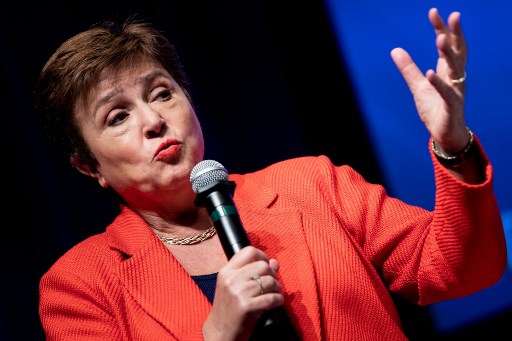"China's economy will return to normal in the second quarter. As a result, the impact on the world economy would be relatively minor and short-lived," Kristalina Georgieva, managing director of the International Monetary Fund (IMF), said on Saturday at the G20 Finance Ministers and Central Bank Governors Meeting in Riyadh.

In this file photo taken on February 10, 2020 International Monetary Fund Managing Director Kristalina Georgieva speaks during an event at the World Bank, in Washington, DC. (Photo: AFP)
She expressed the deepest sympathies to the people in China and other affected countries and affirmed the efforts that the Chinese government made to fight against the COVID-19 outbreak.
"The Chinese authorities are working to mitigate the negative impact on the economy, with crisis measures, liquidity provision, fiscal measures, and financial support. I have had an excellent discussion with Governor Yi Gang and other senior officials and assured them of our support for these policy measures," she said.
While the impact of the epidemic continues to unfold, the WHO's assessment is that with strong and coordinated measures, the spread of the virus in China and globally can yet be contained and the human tragedy arrested, she added.
"We are still learning about how this complex virus spreads and the uncertainties are too great to permit reliable forecasting. Many scenarios can play out, depending on how quickly the virus is contained and how fast the Chinese and other affected economies return to normal," Georgieva noted.
In this scenario, she predicted the 2020 growth for China would be 5.6 percent. This is 0.4 percentage points lower than the January WEO Update. Global growth would be about 0.1 percentage points lower.
However, IMF is also looking at more dire scenarios where the spread of the virus continues for longer and more globally, and the growth consequences are more protracted.
"Global cooperation is essential to the containment of the COVID-19 and its economic impact, particularly if the outbreak turns out to be more persistent and widespread. To be adequately prepared, now is the time to recognize the potential risk for fragile states and countries with weak health care systems," she said.
She said the IMF stands ready to help, including through the Catastrophe Containment and Relief Trust that can provide grants for debt relief to the poorest and most vulnerable members.


